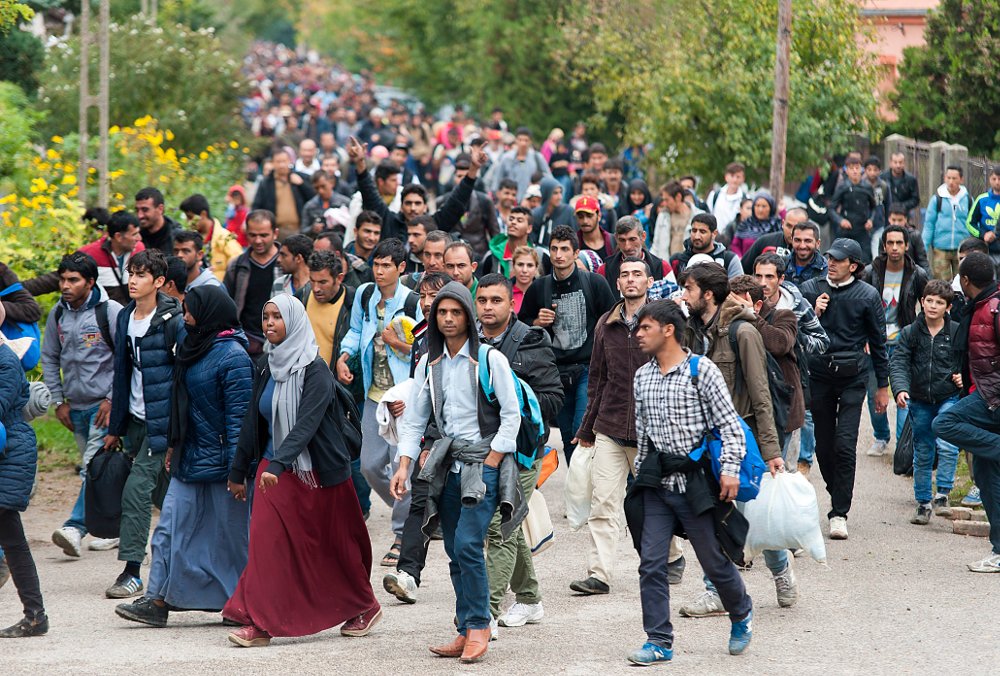In The European, German Adorjan Kovacs makes the argument that based on demographics, the primarily Muslim migrants from the Middle East and North African will actually become the dominant population group within a generation.
The Google translate of the article is a little bit rough, but his key point is that while there are 80 million Germans, most of those Germans are much older while the migrants are generally in their 20s and 30s. When you compare the population of Germans who are in their 20s and 30s to the current and expected population of migrants who are in their 20s and 30s, the ratios tell a very different story about the future of Germany.
Here’s the key paragraph (Again, Google translate isn’t the best.) from the article:
“Of the 23 million people in this country who are old between 20 and 35 years, approximately 11.5 million people have a migration background so in five years. This is the half. The higher, at least in the first generation birth rate of immigrants is not yet considered. You have to think ahead 30 years, if the majority, ie more than 50 percent of the now living in Germany, and these are the elderly, will have died in order to imagine the composition of the German population in the future. There is some uncertainty in this extrapolation, namely the level of immigration, the right to stay and the award of family reunification in the next few years. Nevertheless, it is very likely.”
The problem becomes much clearer when you look at Germany’s population broken out into age categories:

Germany, like the rest of Europe, has not reproduced herself. Now, compare the chart above to one on America:

As you can see, the United States will have a large portion of its population aging, but it also has large populations of youth who will be able to fill the void. Germany does not.
Germany is attempting to fix its failure to reproduce by importing people from very different cultural backgrounds. As the New Years assault by 1,000 migrants against German women in Cologne shows, this culture clash can be quite explosive.
Besides the current clashes, the potential to radically change Germany is apparent. As we have always argued at Intellectual Takeout, politics is merely a reflection of culture. Culture is what drives the direction and laws of a country:

If in a generation half or more than half of Germany’s population is Muslim and remains closer in spirit to the cultures of the Middle East and North Africa than adopting the cultural attitudes of the West, how do you think that will play out in its democracy? After all, in a democracy the will of the people is supreme. If the majority of people want to change the laws to reflect their worldview and culture, what is to stop them? If they want to redefine “rights”, what can the minority do?
That is the Achilles heel of a democracy.
















Leave a Comment
Your email address will not be published. Required fields are marked with *